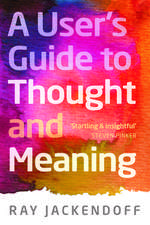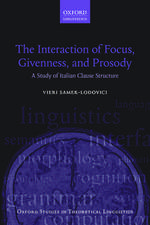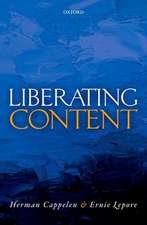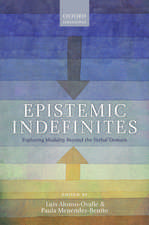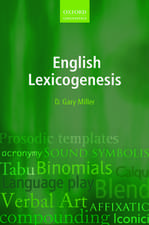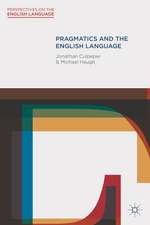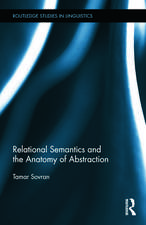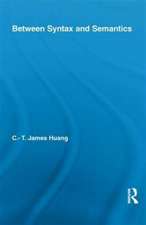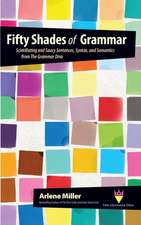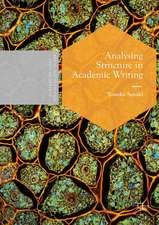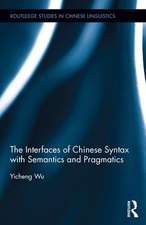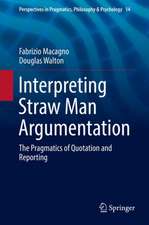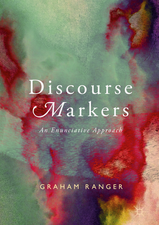Pursuing Meaning
Autor Emma Borgen Limba Engleză Paperback – 9 apr 2015
| Toate formatele și edițiile | Preț | Express |
|---|---|---|
| Paperback (1) | 192.60 lei 31-37 zile | |
| OUP OXFORD – 9 apr 2015 | 192.60 lei 31-37 zile | |
| Hardback (1) | 529.10 lei 31-37 zile | |
| OUP OXFORD – 31 mai 2012 | 529.10 lei 31-37 zile |
Preț: 192.60 lei
Preț vechi: 250.05 lei
-23% Nou
Puncte Express: 289
Preț estimativ în valută:
36.86€ • 38.26$ • 30.73£
36.86€ • 38.26$ • 30.73£
Carte tipărită la comandă
Livrare economică 11-17 martie
Preluare comenzi: 021 569.72.76
Specificații
ISBN-13: 9780198738985
ISBN-10: 0198738986
Pagini: 262
Dimensiuni: 151 x 231 x 15 mm
Greutate: 0.4 kg
Editura: OUP OXFORD
Colecția OUP Oxford
Locul publicării:Oxford, United Kingdom
ISBN-10: 0198738986
Pagini: 262
Dimensiuni: 151 x 231 x 15 mm
Greutate: 0.4 kg
Editura: OUP OXFORD
Colecția OUP Oxford
Locul publicării:Oxford, United Kingdom
Recenzii
Pursuing Meaning is a must-read for philosophers of language and a very clear guide to the current state of semantics for those interested in the field.
The book is very clearly written and structured, and it is informed not just by the philosophical debate, but also by developments in linguistics and cognitive science. In addition, Borg's configuration of a very messy theoretical landscape is helpful and insightful, and the arguments she presents for her views and against the different alternatives are at least always worth taking seriously. I wholeheartedly recommend the book to all those interested in this core philosophical issue. . . anybody interested in these issues should carefully study the arguments and proposals in this excellent work, which I expect to have a great impact in the field.
Borg presents her readers with a thoroughly scholarly text. She cites just about everybody who plays her kind of game. In these citings, she gives fair and comprehensive representations of what others say about these matters and does so, generally, in a clear writing style.
Borg brings order and focus to the debate, responding to a deluge of objections from multiple perspectives. . .Borg writes in an exceptionally clear and often witty style. Pursuing Meaning is lively, full of interesting turns of phrase, and detailed in content. . .Borg addresses questions about the usefulness and underlying plausibility of minimalism head-on, offering positive reasons for being a minimalist. . .Pursuing Meaning has a proactive rather than reactive tone, which helps draw along readers who are initially disinclined to support her position. Given the depth of disagreement over the semantics/pragmatics divide, that, in itself, is a major achievement.
The book is very clearly written and structured, and it is informed not just by the philosophical debate, but also by developments in linguistics and cognitive science. In addition, Borg's configuration of a very messy theoretical landscape is helpful and insightful, and the arguments she presents for her views and against the different alternatives are at least always worth taking seriously. I wholeheartedly recommend the book to all those interested in this core philosophical issue. . . anybody interested in these issues should carefully study the arguments and proposals in this excellent work, which I expect to have a great impact in the field.
Borg presents her readers with a thoroughly scholarly text. She cites just about everybody who plays her kind of game. In these citings, she gives fair and comprehensive representations of what others say about these matters and does so, generally, in a clear writing style.
Borg brings order and focus to the debate, responding to a deluge of objections from multiple perspectives. . .Borg writes in an exceptionally clear and often witty style. Pursuing Meaning is lively, full of interesting turns of phrase, and detailed in content. . .Borg addresses questions about the usefulness and underlying plausibility of minimalism head-on, offering positive reasons for being a minimalist. . .Pursuing Meaning has a proactive rather than reactive tone, which helps draw along readers who are initially disinclined to support her position. Given the depth of disagreement over the semantics/pragmatics divide, that, in itself, is a major achievement.
Notă biografică
Emma Borg joined the Philosophy Department at the University of Reading in 1998, shortly before she completed her PhD at University College London. She has been with the Department ever since and is currently Head of Department. She has held visiting positions at Rutgers University and the University of Chicago, and was a recipient of a Philip Leverhulme Prize (for 'outstanding young researchers'). She is on the editorial boards for the journals Ratio, Theoria, and the International Review of Pragmatics, and has published widely on issues within the philosophy of language, including the monograph Minimal Semantics (OUP, 2004).


